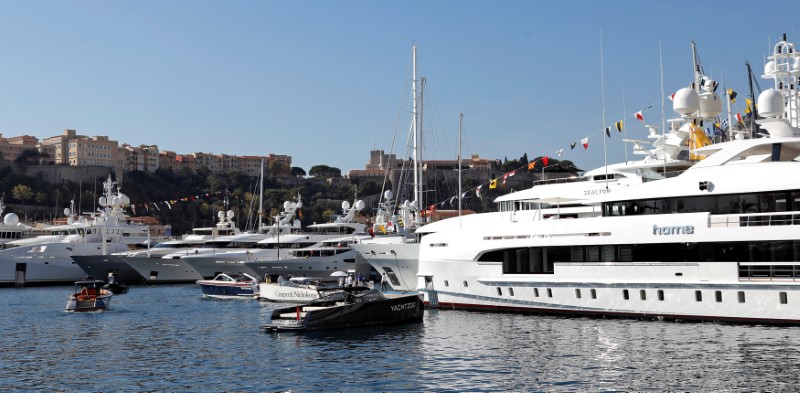PARIS (Reuters) - The European Commission has told Britain and Malta to change rules relating to value added tax (VAT) on yachts and private jets or face possible financial sanctions, the EU commissioner for taxation said on Friday.
Pierre Moscovici said he had written three weeks ago to the British finance minister about the Isle of Man and to the Maltese minister about VAT on yachts and private jets.
"There are practices that we have reasons to think are suspect," Moscovici told French television BFM TV.
"I asked that the rules be changed and if they aren't the European Commission will launch an infringement procedure that can bear extremely heavy financial sanctions," he said.
EU officials said the Isle of Man is suspected of exempting from VAT buyers of jets even when there is no grounds to grant the waiver.
If a jet is bought for business reasons, no VAT is applied, but on the Isle of Man the Commission believes authorities do not check sufficiently whether buyers effectively use the planes for business or private reasons. In the latter case, VAT should be paid.
Malta is under scrutiny because of its rules on luxury yachts that slash the VAT rate applied to bigger ships on the grounds they are used mostly in international waters, an EU official said.
It would likely take years, however, for fines to be imposed under EU rules, which could happen only after two EU court rulings against the offending countries.
The European Union is clamping down on tax avoidance, trying to close loopholes that allow the wealthy to cut their tax bills legally.
The release last week of the "Paradise Papers", a trove of financial documents mostly from offshore law firm Appleby, has refocused attention on the Isle of Man, a British crown dependency, and Malta among other offshore banking centres.
The leaked papers have given new impetus on tax issues with EU ministers aiming to approve a blacklist of tax havens next month, although they are divided over how to impose sanctions.
The British government said on Monday it was seeking the leaked papers to look into any allegations and has said holding investments offshore is not an automatic sign of wrongdoing.
Maltese Prime Minister Joseph Muscat told parliament in the capital Valletta on Wednesday that the VAT rules were approved years ago by the European Union, and comply with regulations set by the EU and the OECD club of wealthy nations.

An EU parliament report had refuted allegations that the country is a tax haven, Muscat said, adding: "Malta is not a tax haven and vigorously rejects the label of tax haven."